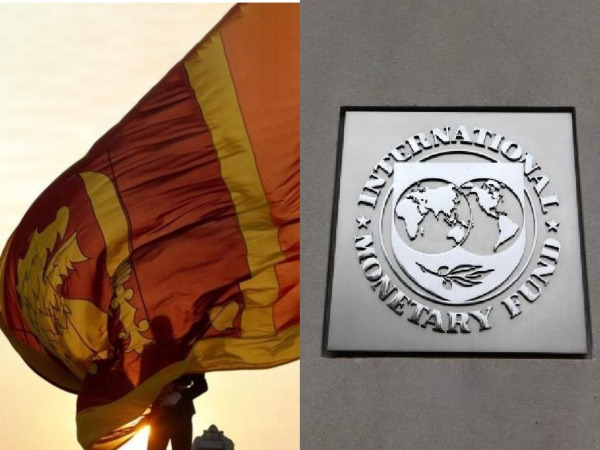
Washington: International Monetary Fund (IMF) staff and debt-ridden Sri Lankan authorities on Thursday reached a staff-level agreement to support Sri Lanka's economic policies with a 48-month arrangement under the Extended Fund Facility (EFF) of about $2.9 billion.
IMF mission led by Peter Breuer and Masahiro Nozaki visited Colombo from August 24 to September 1, 2022, to continue discussions on IMF support for Sri Lanka and the authorities' comprehensive economic reform programme. "The Sri Lankan authorities and the IMF team have reached a staff-level agreement to support the authorities' economic adjustment and reform policies with a new 48-month Extended Fund Facility (EFF) with a requested access of about SDR 2.2 billion (equivalent to USD 2.9 billion)," said Breuer and Nozaki joint statement.
Sri Lanka's new Fund-supported programme aims to restore macroeconomic stability and debt sustainability while safeguarding financial stability, protecting the vulnerable, and stepping up structural reforms to address corruption vulnerabilities and unlock Sri Lanka's growth potential, read the IMF press release.
Debt relief from Sri Lanka's creditors and additional financing from multilateral partners will be required to help ensure debt sustainability and close financing gaps.
"The new EFF arrangement will support Sri Lanka's program to restore macroeconomic stability and debt sustainability, while safeguarding financial stability, reducing corruption vulnerabilities and unlocking Sri Lanka's growth potential. The agreement is subject to the approval by IMF management and the Executive Board in the period ahead, contingent on the implementation by the authorities of prior actions, and on receiving financing assurances from Sri Lanka's official creditors and making a good faith effort to reach a collaborative agreement with private creditors. Debt relief from Sri Lanka's creditors and additional financing from multilateral partners will be required to help ensure debt sustainability and close financing gaps," added the statement.
Financing assurances to restore debt sustainability from Sri Lanka's official creditors and making a good faith effort to reach a collaborative agreement with private creditors are crucial before the IMF can provide financial support to Sri Lanka, added the release.
"Sri Lanka has been facing an acute crisis. Vulnerabilities have grown owing to inadequate external buffers and an unsustainable public debt dynamic. The April debt moratorium led to Sri Lanka defaulting on its external obligations, and a critically low level of foreign reserves has hampered the import of essential goods, including fuel, further impeding economic activity. The economy is expected to contract by 8.7 per cent in 2022 and inflation recently exceeded 60 per cent. The impact has been disproportionately borne by the poor and vulnerable," added the statement.
Sri Lanka currently faces its worst economic crisis in seventy years, leading to shortages of food, medicine and fuel. The island nation's worst economic crisis in seven decades led to a shortage of foreign exchange that stalled imports of essential items such as fuel, medicine, and fertilizer.
"Against this backdrop, the authorities' programme, supported by the Fund, would aim to stabilise the economy, protect the livelihoods of the Sri Lankan people, and prepare the ground for economic recovery and promoting sustainable and inclusive growth," said the statement.